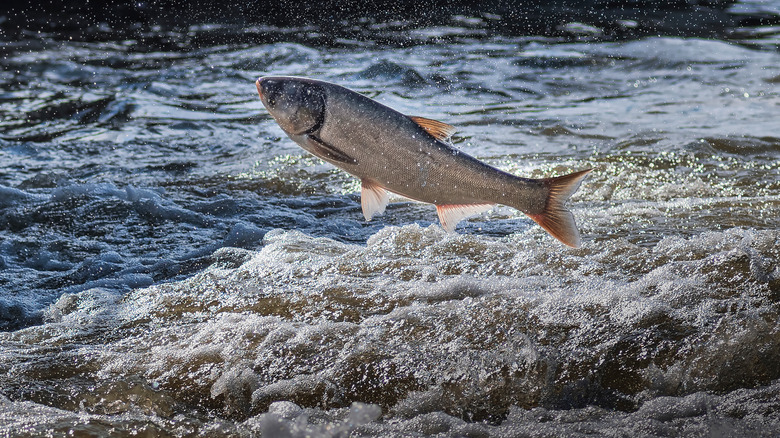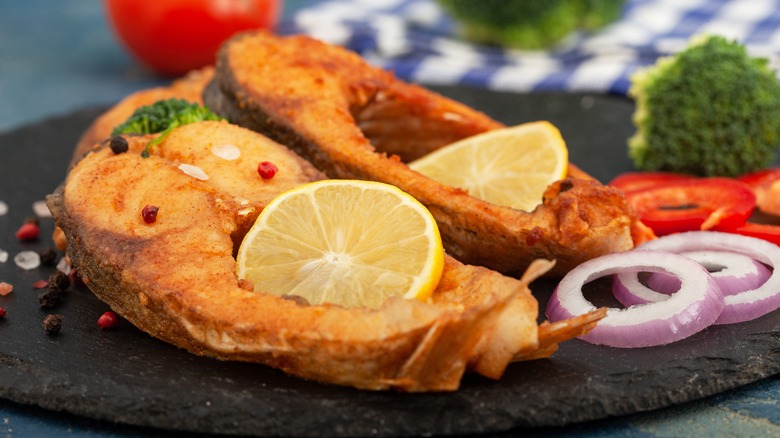The Real Reason Asian Carp Is Being Renamed
Americans in the south and midwest may have heard the last of the Asian carp because the Illinois Department of Natural Resources (DOR) is changing the name of the invasive species, which can eat 40% of their body weight in plankton each day and is known to injure boaters by leaping out of the water (via Madison.com). Food & Wine reports that the fish, which include bighead, black, grass, and silver carp, are colloquially known as "Asian carp" but will now be called "Copi" as part of the ongoing strategy to eliminate the fish from the nation's rivers and the Great Lakes region. The Chicago Tribune reports that the name was suggested by a Chicago-based communications firm as a tongue-in-cheek play on the word "copious," something the bony, but low-in-Mercury fish certainly are.
So how does rebranding an invasive fish help get rid of it? Hopefully, by making it sound more appetizing. Asian carp are seen as bottom feeders and have a reputation of being dirty and unappealing to American diners, despite having been featured on Chinese menus for over a thousand years. This is because in the 1960s and 1970s, the species was imported to the U.S. to get rid of unwanted plankton and algae in the south's water treatment ponds (via Can't Beat 'Em, Eat 'Em).
Although bringing in the Asian carp served a purpose, they ultimately made their way into the Mississippi River as a result of flooding and began breeding rapidly.
Eat our troubles
Although Madison.com reports some chefs have attempted to market the fish in the past, this is the most organized effort to rebrand it. According to Food & Wine, the Illinois Department of Natural Resources (DOR) has sampled the fish as "Copi" at events and received positive reviews, though they literally could not give it away in restaurants when it was called "carp" (per the Chicago Tribune). "It's a tasty fish that's easy to work with in the kitchen and it plates beautifully," DOR Director Colleen Callahan told Food & Wine. "Every time we've offered samples during the Illinois State Fair, people have walked away floored by how delicious it is."
Analysts estimate that if demand existed, up to 50 million pounds of "Copi" could be caught in the Illinois River annually an important step in keeping the fish out of Lake Michigan, which could be potentially devastating to the ecology of the Great Lakes and their commercial fishing industry. It could also become an ethical, affordable protein source in a time of record food prices.
Currently, the fish are used in animal feed and fertilizer and electric barriers have been placed in canals and rivers to block them from progressing north with a more advanced barricade being developed (per ABC News). In the meantime, experts hope kitchens can provide more help. Several Chicago-area restaurants and grocers are now selling the fish as "Copi" and the DOR is petitioning the FDA and industry groups to adopt the name.

